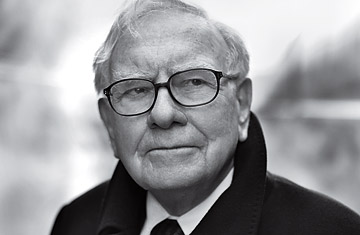
(9 of 9)
Unlike many liberals, he's not a great believer in regulation as a curb for corporate excess. He doesn't want to crush Wall Street's animal spirits or control market volatility or cap executive pay by force; better tax policy would take care of all that, in his view. He's not worried that rising inequality is going to result in social unrest, at least in Middle America. "I drove by Occupy Omaha, and there was maybe one guy there," he says. "I just don't think this is a country that has the tinder for social instability. I mean, the classic test of that was actually the 2000 election. If you think about it, half the people in America felt that they were screwed, and the next day, they all went to work."
But on taxes and the debilitating growth of partisan politics, he doesn't mince words. He was horrified by the debt-ceiling debacle this summer and shocked that Republicans were willing to play a game of political chicken with the goodwill and faith put in the world's reserve currency. He was disappointed that so many financiers who'd supported Obama and received the benefits of the financial bailouts were unwilling to support higher taxes to help close the deficit.
He's also got a few choice words about the Republican presidential candidates and their ideas about bootstrapping and "merit" economies. "This whole business about Newt Gingrich going down to Occupy and saying, 'They ought to be getting a job,' that's just--you know, maybe they can be historians for Freddie Mac too and make $600,000 a year." When I ask whether Mitt Romney is a job creator or destroyer, Buffett says that while businesses shouldn't hang on to people they don't need, "I don't like what private-equity firms do in terms of taking out every dime they can and leveraging [companies] up so that they really aren't equipped, in some cases, for the future."
As for President Obama--should he win re-election--Buffett would like to see him lay out the truth about the road ahead to the American people. "I think that the American people would be pretty responsive to shared sacrifice if it was really shared and they knew what to expect," says Buffett. "I've always thought that part of my job at Berkshire is telling people what they should expect and what they shouldn't expect from us. I don't want to be held to things I can't do. On the other hand, I shouldn't totally downplay what can be done just to create a phony target."
Buffett feels the President missed an opportunity to do that right after he took office. But he's optimistic that it can still be done. "We need to tell people that the road is going to be long. We've got too many damn houses. They're not going to go away. This recovery is going to take a long time. And the financial crisis has exposed a lot of flaws in our system." But the flaws can be fixed. With the right rules, says Buffett, our system can work again. "It's like Martin Luther King said. We aren't trying to change the heart. We're trying to restrain the heartless.
"Isn't that," he asks, "what government is all about?"
